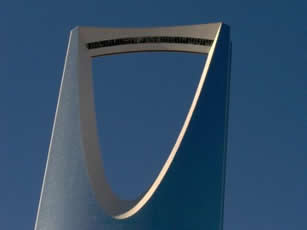Economic growth in the Middle East and North Africa (Mena) region will likely reach 4.5 per cent in 2010 and 4.8 per cent in 2011 due to commodity price strength, rising external demand and robust government spending programmes, the International Monetary Fund (IMF) said in its World Economic Outlook report.
"First, higher commodity prices and external demand are boosting production and exports in many economies in the region. Second, government spending programmes are playing a key role in fostering the recovery," the IMF report said.
The Mena region experienced growth of 2.4 per cent in 2009, according to the IMF. Mena oil exporting countries Iran, Saudi Arabia, Algeria, the UAE, Kuwait, Iraq, Qatar and Sudan will see collective economic growth of 4.5 per cent in 2010 and 4.6 per cent in 2011. The group witnessed 1.6 per cent growth in 2009. Economic growth in the region's oil importing countries will likely slow down this year.
The group Egypt, Morocco, Syria, Tunisia, Lebanon and Jordan will achieve growth of 4.6 per cent in 2010, slightly below the 4.7 per cent growth seen in 2009. The IMF expects the group's economies to expand by 5.2 per cent in 2011. The IMF said strong fiscal policies across the region have helped contain the economic crisis.
"Government investment programmes, especially in infrastructure, will continue to boost domestic demand in the near term in many Mena economies," it said.
The IMF also said Mena countries whose currencies aren't pegged to the US dollar should use monetary policies ?as a counter cyclical tool? if inflation levels are subdued.






